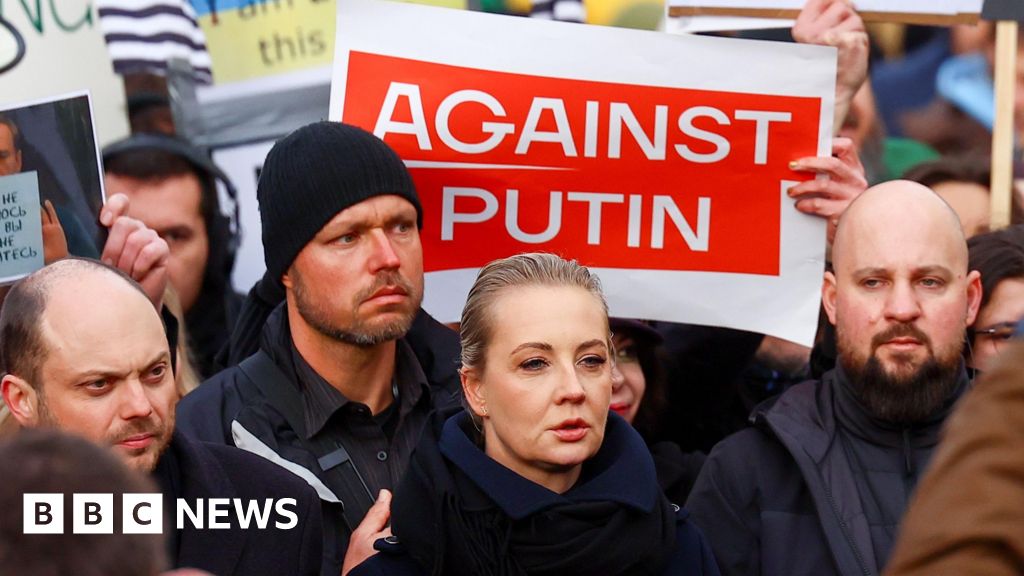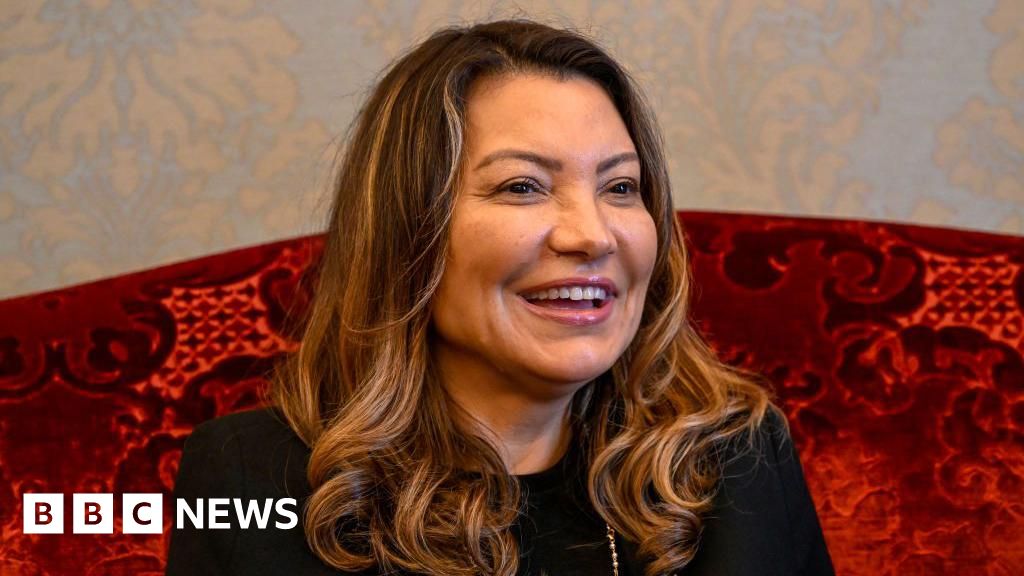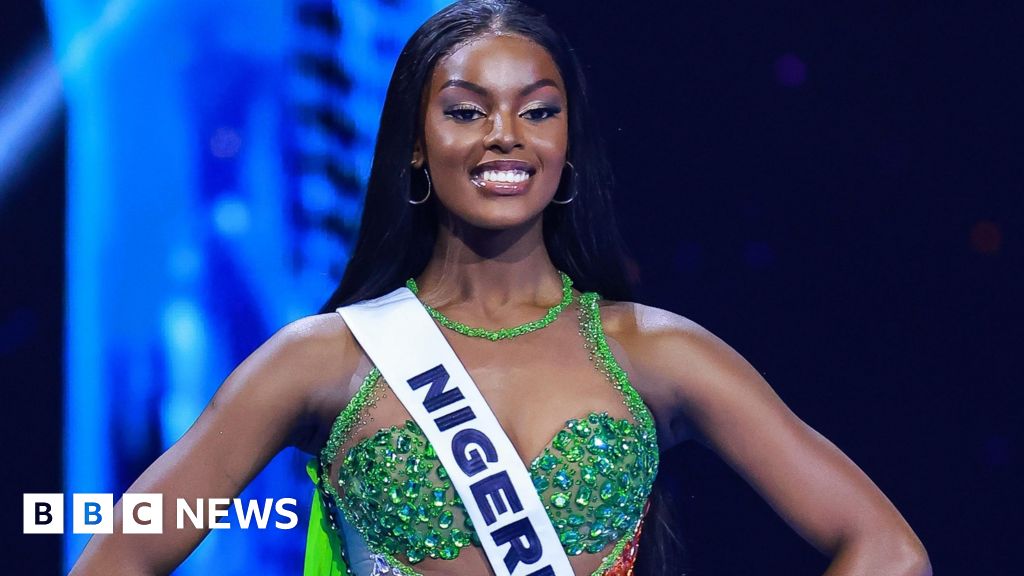ARTICLE AD BOX
By Vitaliy Shevchenko
BBC Monitoring
Watch: Anti-war demonstrator disrupts Russia's state TV news
Russian state TV's Channel One plays a crucial part in the Kremlin's media messaging. It is Russia's second most popular channel, and its flagship news programme Vremya (Time) is watched by millions.
Normally, there is no room for deviation from the party line.
So when Marina Ovsyannikova ran on to the set behind the news anchor in prime time, brandishing a poster saying "Stop the War!", it was an unprecedented moment of dissent against the Kremlin which reached into living rooms across the country.
Ms Ovsyannikova, who has a Ukrainian father and Russian mother, is believed to be in police custody, but her exact whereabouts are unknown.
Her protest is extraordinary in more ways than one.
To start with, Channel One viewers are not even used to hearing the word "war" used to describe Russia's invasion of Ukraine. The government has ordered the media to call it a "special military operation" launched to "demilitarise and denazify" Ukraine.
Ms Ovsyannikova's protest also targeted the core President Putin supporters: most Russians still use state TV as their main source of news, rather than from reports in the diminishing number of independent websites or from social media.
Image source, Marina Ovsyannikova
Image caption,It soon emerged that Ms Ovsyannikova was a Channel One editor who had earlier recorded a video statement
Staging a protest like this takes extraordinary courage. Ten days earlier, Russia approved a law under which anyone challenging the Kremlin's version of events in Ukraine can face up to 15 years in jail.
Almost 15,000 anti-war protesters have been detained since the invasion began, according to the Ovd-info website. None of them have reached into as many Russia homes as Ms Ovsyannikova did.
Beyond a few seconds of exposure on Channel One, state media have ignored the protest. Kremlin spokesman Dmitry Peskov has dismissed her action as hooliganism.
For fear of being targeted, independent Russian websites have blurred out or pixelated Ms Ovsyannikova's poster.
Novaya Gazeta, for example, left only one line from her poster still legible: "Don't believe propaganda."
Image source, Novaya Gazeta
Image caption,Independent website Novaya Gazeta left only one line of the poster unblurred
It is a different story on social media, where this anti-Putin moment has been seen as a glimmer of hope in an otherwise bleak Russian media landscape.
"Marina Ovsyannikova is a hero of Russia!" opposition politician Ilya Yashin said on Twitter.
"Five seconds of truth can wash away the dirt of weeks of propaganda," said another opposition politician, Lev Shlosberg.
Her protest is not the only crack to appear in the Kremlin media machine's campaign to convince Russians that the operation in Ukraine is neither a war nor an invasion.
Image source, Alamy/Tass
Image caption,Lilia Gildeyeva had worked for NTV since 2006
News broke hours afterwards that a veteran presenter from another top television channel, NTV, had left the country.
"First, I left [Russia] because I was afraid they would not let me go just like that, then I submitted my resignation," Lilia Gildeyeva told a prominent blogger.
What lies in store for Ms Ovsyannikova is less clear. Lawyer Anastasia Kostanova told BBC Russian that she was now under going a pre-investigation check at the hands of Russia's Investigative Committee.
"I think that they will try to test a new criminal article on fakes and, to intimidate them, they will try to use the maximum punishment under this article - up to 15 years in prison," she said.

 2 years ago
169
2 years ago
169








 English (US)
English (US)